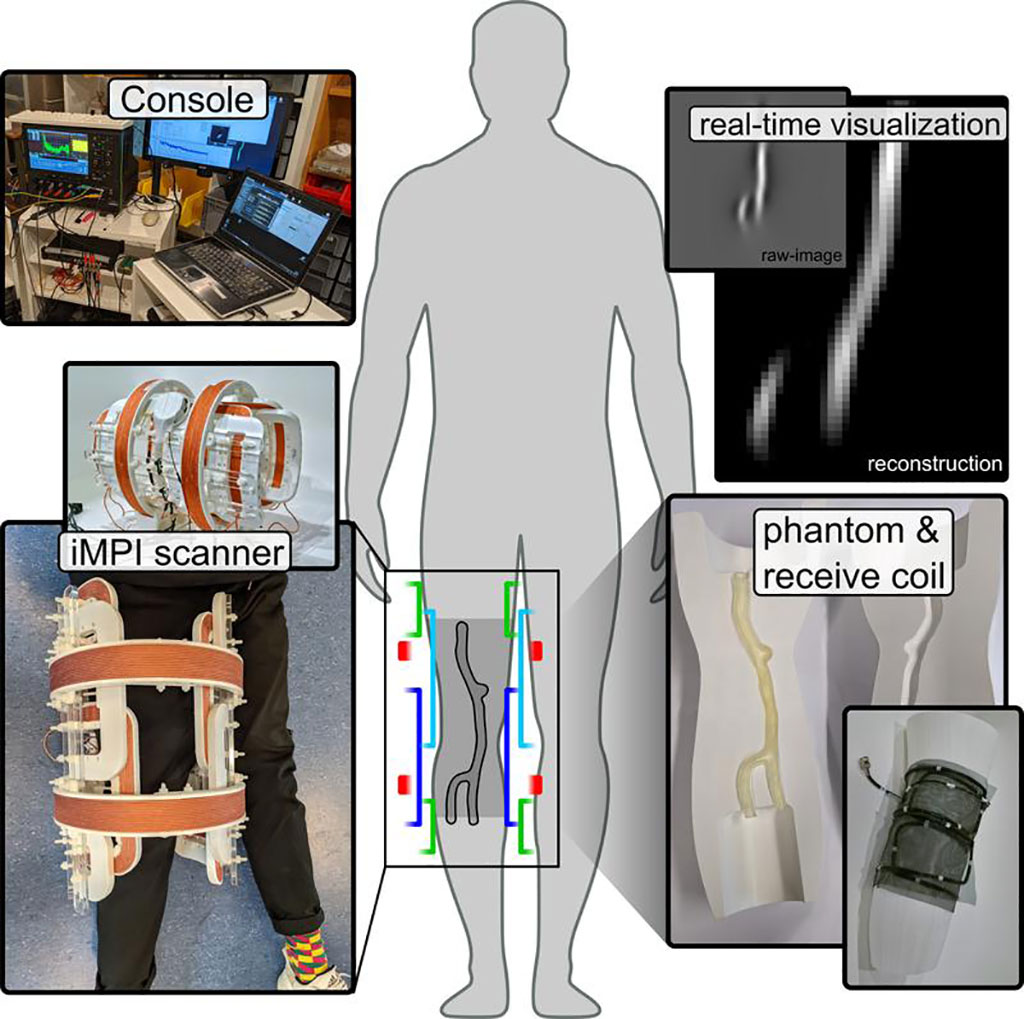Portable Scanner Uses New Radiation-Free Imaging Technology to Provide Deeper Insights
Posted on 27 Jul 2023
Imaging techniques like computed tomography, magnetic resonance imaging, positron emission tomography, and ultrasound have become invaluable tools in medicine. Each method provides unique insights into the human body, enabling physicians to identify abnormalities or evaluate functional processes. However, radiation and radioactive materials used for imaging in medical settings can be harmful to human health. There are possible short-term and long-term risks from the very low doses of radiation exposure from imaging procedures. Now, a team of physicists has successfully readied a new, radiation-free imaging technique that does not require radioactive markers for use on humans.
A team of physicists and medical doctors from the University of Würzburg (Würzburg, Germany) has managed to make a radiation-free imaging technology, Magnetic Particle Imaging (MPI), suitable for human use. As the name suggests, MPI is based on the direct visualization of magnetic nanoparticles, which do not occur naturally in the human body and must be administered as markers. Unlike positron emission tomography, which relies on the detection of gamma rays from a radioactive marker, MPI operates on the response signal of the magnetic nanoparticles to changing magnetic fields over time. During this process, the magnetization of the nanoparticles is specifically manipulated using external magnetic fields, enabling the detection of not only their presence but also their spatial position within the human body.

The scientists have succeeded in implementing the novel concept in an MPI scanner (interventional Magnetic Particle Imaging - iMPI) specifically designed for intervention. The newly-developed portable scanner can visualize dynamic processes within the human body, like blood flow, among other things. The team demonstrated the scanner’s impressive mobility through real-time measurement by comparing it simultaneously with a specialized X-ray device, the standard instrument used in angiography in university hospitals. The measurements were performed on a realistic vascular phantom and the initial images were evaluated. In addition to conducting further exciting measurements with the iMPI device, the physicists are now focused on refining their scanner to further enhance the image quality.
"As with positron emission tomography, which relies on the administration of radioactive substances as markers, this method has the great advantage of being sensitive and fast without 'seeing' interfering background signals from tissue or bone," explained Professor Volker Behr from the University's Institute of Physics.
"This is a first important step towards radiation-free intervention. MPI has the potential to change this field for good," said Dr. Stefan Herz, senior author.
Related Links:
University of Würzburg














